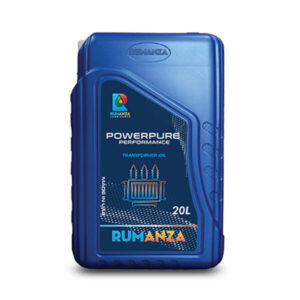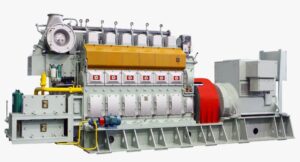How to Choose the Best Oil for Your Generator
Powering Performance: The Role of Generator Oil
Generator Oil is a specially formulated lubricant that helps your generator’s engine run smoothly. The primary function of generator oil is to reduce friction between moving parts, cool the engine, and keep it running efficiently. Generator oil also helps to remove debris and contaminants, ensuring that the internal components don’t wear out prematurely.
Using the right generator oil can significantly increase the lifespan of your machine and prevent costly repairs due to overheating or engine failure.
Why Oil Matters for Generator Health
Using the correct oil in a generator lubricates engine components, prevents excessive wear, and disperses heat more effectively. Generators often run for prolonged periods, especially during power outages, making high-quality oil essential for keeping the engine clean and operating smoothly.
How Oil Impacts Generator Performance
- Lubrication: Reduces friction between moving parts.
- Cooling: Helps regulate temperature in the engine.
- Corrosion Prevention: Prevents rust in internal components.
- Dirt and Debris Control: Helps keep contaminants out of sensitive areas.
Generator Oil Type
There are different generator oil types, and choosing the right one depends on your generator’s engine design and working conditions. Typically, oils are categorized into:
- Synthetic Oils: These oils provide better performance, especially in extreme temperatures, and are ideal for longer intervals between oil changes.
- Conventional Oils: These oils are affordable but may need to be changed more frequently.
- Semi-Synthetic Oils: A blend of synthetic and conventional oils, providing some benefits of both.
Each oil type offers different benefits, so it’s essential to refer to the generator’s manual to determine which type is recommended.
Oil Grades and Viscosity Ratings
One of the main factors in choosing generator oil is understanding viscosity and SAE ratings (e.g., 10W-30, 5W-30). These ratings indicate the oil’s ability to flow at various temperatures:
- Cold Weather: Oils with a “W” in the rating (e.g., 5W-30) perform better in colder climates.
- Warm Weather: Higher viscosity oils (e.g., 10W-30) are better suited for hotter climates.
What types of generator oil grade: Guide
| Oil Grade | Viscosity (SAE) | Recommended Use | Temperature Range | Benefits | Common Applications |
|---|---|---|---|---|---|
| Single-Grade Oils | SAE 30, SAE 40 | For stable temperature environments, especially in summer or constant operations. | Stable conditions, generally above 32°F (0°C). | Provides reliable lubrication in consistent temperatures. | Small petrol generators in warm climates. |
| Multi-Grade Oils | SAE 10W-30, SAE 15W-40 | Versatile; suitable for varying temperatures. | -4°F to 104°F (-20°C to 40°C) for SAE 10W-30, -20°F to 120°F for SAE 15W-40. | Adaptable to different climates; reduces engine wear during cold starts. | Most modern generators. |
| High-Performance Synthetic Oils | SAE 5W-30, SAE 0W-40 | Extreme climates or heavy-duty usage; frequent stops/starts. | -40°F to 104°F (-40°C to 40°C) for SAE 5W-30, broader ranges for 0W-40. | Superior performance, better thermal stability, enhanced engine protection. | Premium diesel or petrol generators. |
| Diesel-Specific Oils | API CK-4, CJ-4 Standards | High-performance diesel engines in generators. | Typically rated for extended temperature ranges, depending on viscosity. | Designed to handle high loads; protects against soot buildup and oxidation. | Industrial diesel generators. |
| Conventional Oils | SAE 15W-40 | Standard generator operation in mild climates. | 14°F to 120°F (-10°C to 50°C). | Economical; suitable for basic applications. | Older or standard generators. |
| Cold-Weather Oils | SAE 0W-30, SAE 5W-20 | Generators in freezing temperatures. | -40°F to 68°F (-40°C to 20°C). | Enables easy starting in cold weather. | Standby generators in cold climates. |
Notes:
- Manual Recommendation: Always prioritize the oil grade specified by the generator’s manual.
- API Certification: Ensure the oil meets API standards (e.g., SN, SM for petrol engines; CK-4, CJ-4 for diesel engines).
- Regular Changes: Regardless of the grade, replace oil based on usage hours or as advised by the manufacturer to maintain generator efficiency and longevity.
Is 10W-30 the Best Oil for a Generator?
10W-30 oil is a versatile choice for generators, offering good cold-start performance and high-temperature protection. It works well in moderate climates but may not be ideal for extreme UAE heat, where 15W-40 or 20W-50 is often preferred for better thermal stability. Always check the generator manufacturer’s recommendations to ensure optimal performance and longevity.
Petrol Generator Oil Types
Best oil or petrol generator typically require:
- SAE 10W-30 – Ideal for moderate temperatures, offering balanced performance.
- SAE 5W-30 (Synthetic) – Best for extreme temperatures, providing better lubrication and fuel efficiency.
- SAE 15W-40 – Suitable for hotter climates like the UAE, ensuring enhanced engine protection.
Always refer to the manufacturer’s guidelines for the best oil type based on operating conditions.
Diesel Generator Engine Oil Grade In UAE
“In the UAE, selecting the right diesel generator engine oil grade is crucial for optimal performance and longevity. Typically, oils with higher viscosity grades like 15W-40 or 20W-50 are recommended due to the region’s hot climate. These grades offer better protection against high temperatures and ensure smooth operation, enhancing engine durability and performance in demanding conditions.”
Best Oil For Generator Gasoline
For gasoline generator oil type, the recommended oil depends on the operating temperature:
- SAE 10W-30 – Ideal for moderate climates, commonly used for most generators.
- SAE 5W-30 (Full Synthetic) – Best for extreme temperatures, offering better cold starts and engine protection.
- SAE 15W-40 – Suitable for high-temperature regions like the UAE, ensuring better lubrication and reduced wear.
Always check the manufacturer’s specifications to choose the right oil for your generator.
Best Oil for Gas Generators: Importance and Selection
Using the right oil for your gas generator is essential for its efficiency, longevity, and overall performance. Gas generators operate under high temperatures and continuous loads, requiring high-quality lubricants to prevent wear and overheating.
Key Factors to Consider:
- Oil Type: Most gas generators use SAE 10W-30 or SAE 5W-30 for varying temperature conditions. Synthetic oils offer better protection and longer service life.
- Additives: Choose oils with detergents and anti-wear additives to prevent sludge buildup and corrosion.
- Viscosity: Select oil based on the climate—thinner oils (like 5W-30) for cold weather and thicker oils (like 10W-30) for warmer conditions.
- API Classification: Ensure the oil meets API SJ, SL, or SN standards for optimal engine protection.
Stroke Generator Oil
Most portable generators operate on 4 stroke generator oil. A 4-stroke engine completes its power cycle in four stages: intake, compression, combustion, and exhaust. Because of this complex cycle, these engines need a robust oil that can handle the varying pressures and temperatures inside the engine.
Using the appropriate 4-stroke generator oil ensures that your engine remains well-lubricated and runs efficiently, especially under heavy loads. It is also important to choose an oil that meets the engine’s viscosity requirements, such as 10W-30 or 5W-30, depending on the temperature conditions.
Fuel Oil Generator
For generators that run on fuel oil, the type of oil needed differs from gasoline engines. Fuel oil generators often require oils that can handle the specific properties of fuel oil combustion, which tends to produce more heat and combustion by-products.
These oils are designed to resist thermal breakdown, keep the engine cool, and ensure optimal performance even under heavy use. Regular oil checks are crucial for fuel oil generators to prevent excessive wear and maintain smooth operation.
Cycle Generator Oil
Choosing the right transmission fluid depends on your vehicle’s engine type and manufacturer’s recommendations. For 2-stroke engines, using the specific 2-stroke oil is crucial. Always check your vehicle’s manual for the recommended oil type and viscosity. For 4-stroke engines, use the oil designed for these systems to ensure compatibility and optimal performance.
Electric Generator Oil
Although electric generators don’t have combustion engines like gasoline or diesel generators, some still use oil for lubrication and cooling. Electric generator oil is designed to keep the motor parts well-lubricated, reducing friction and ensuring smooth operation.
It’s essential to use the correct type of oil recommended by the manufacturer, particularly in high-powered electric generators, which may require synthetic oils for better performance.
Gasoline Generator Oil
Gasoline-powered generators operate at high temperatures and under heavy loads, which makes choosing the right gasoline generator oil crucial. These engines require oils that can handle the heat and provide consistent lubrication over time.
Synthetic oils, especially those designed for gasoline engines, offer superior protection and stability, making them an excellent choice for generators that will be used in demanding conditions. Always check the generator manual for recommendations on the appropriate oil grade and type.
Oil for Petrol Generator
Petrol generators are widely used for home and commercial purposes, and choosing the right oil for petrol generators is key to ensuring their longevity. Petrol engines often operate at high speeds, and their oils need to have high viscosity to provide adequate protection.
When selecting oil for your petrol generator, consider the climate in which the generator will operate and the load it will carry. For instance, synthetic oils are more suitable for generators used in hot weather or heavy-duty conditions.
Best Generator Oil for Hot Weather
Operating generators in hot weather requires selecting oils that can withstand high temperatures without breaking down. The best oil for generator for hot weather is typically a synthetic oil, as it has better thermal stability and can maintain its viscosity under extreme heat conditions.
Synthetic oils also reduce the likelihood of sludge buildup, which is common in high-temperature environments. If you’re using your generator in hot climates, opt for oils like 10W-30 or 5W-30, as they perform well across a wide range of temperatures.
Generator Oil Filter
The generator oil filter plays a crucial role in keeping the oil free from contaminants like dust, dirt, and metal particles. Over time, debris can accumulate in the engine oil, causing wear and tear on internal parts.
Choosing the right oil filter for your generator ensures that the oil stays clean, prolonging the life of both the oil and the generator engine. Be sure to change the oil filter regularly, especially during scheduled oil changes, to maintain optimal performance.
Changing Generator Oil
Regular changing of generator lubricant oil is vital to maintaining engine health. Over time, oil becomes contaminated with dirt, debris, and by-products of combustion. This reduces the oil’s effectiveness in lubricating and cooling the engine.
It’s recommended to change the oil after every 50-100 hours of use or based on the manufacturer’s guidelines. During the oil change, it’s also important to inspect the oil filter and replace it if needed to ensure the oil remains clean.
Generator Leaking Oil
A generator leaking oil is a sign of trouble and should be addressed immediately. Oil leaks can occur due to worn-out gaskets, seals, or damaged oil filters. If the oil level drops too low, it can cause overheating and severe engine damage.
If you notice an oil leak, stop using the generator and inspect the engine for the source of the leak. Fixing minor issues early can prevent more costly repairs down the line.
Common Mistakes to Avoid
- Using the Wrong Oil Type: Using oils with the incorrect viscosity or grade can impair performance or even harm the generator engine.
- Ignoring Climate Conditions: Using oils unsuitable for your climate can lead to performance issues and frequent oil changes.
- Skipping Oil Changes: Failing to replace oil regularly can lead to sludge build-up, reduced engine efficiency, and eventual engine failure.
Pros and Cons of Generator Oil
| Oil Type | Pros | Cons |
|---|---|---|
| Synthetic Oil | High stability in extreme temps, long-lasting, excellent protection, clean engine | Expensive, unnecessary for infrequent/light usage |
| Conventional Oil | Cost-effective, easily available, suitable for mild climates | Requires frequent changes, less effective in extremes, higher sludge formation |
| Synthetic Blend Oil | Good balance of performance and cost, decent temp stability | More expensive than conventional, not ideal for harsh conditions |
| High-Mileage Oil | Reduces leaks, wear protection for older engines, prevents sludge | Higher cost, unnecessary for newer or low-use generators |
| Heavy-Duty Oil | Withstands high stress, continuous operation stability, protects under heavy loads | Expensive, unnecessary for light-duty generators |
| Multi-Grade Oil | Effective across temps, good for cold starts, widely compatible | Performance varies by grade, synthetic multi-grades can be costly |
Final Thoughts
FAQs
The type of oil you use in your generator depends on the engine type and the climate conditions where the generator will operate. For most portable and home generators with 4-stroke engines, the recommended oil type is 10W-30 or SAE 30, as these provide good performance in a range of temperatures. In colder climates, 5W-30 or synthetic oils are preferred, while in hot conditions, a higher viscosity oil like 10W-40 may be used.
Yes, you can use 10W-30 oil in most generators, as long as it meets the required specifications for your generator’s engine. Always check the manufacturer’s guidelines to ensure the oil is compatible with your specific model. 10W-30 oil is commonly used because it provides reliable lubrication across a wide range of temperatures.
Yes, you can use 10W-40 oil in your generator, especially if you’re operating in a warmer climate. The higher viscosity of 10W-40 oil provides better protection in hot conditions. However, if the manufacturer specifies 10W-30, it’s best to stick with that for optimal performance and to avoid any potential engine issues.
Yes, you can use 5W-30 oil in your generator, particularly if you are operating in cold temperatures. 5W-30 oil is thinner at lower temperatures, making it easier for the engine to start and providing better lubrication during cold starts. However, in warmer climates, you may want to use a thicker oil like 10W-30 or 10W-40.
It’s generally not recommended to use 20W-50 oil in generators, as it is much thicker and designed for older engines or high-performance vehicles. Using 20W-50 oil in a generator could lead to poor lubrication in colder temperatures and may cause additional wear on the engine parts. Stick to oils like 10W-30 or 5W-30, depending on the climate and generator type.
Car engine oil and generator oil have different formulations tailored to their specific engines. Using car engine oil in a generator can lead to insufficient lubrication, increased wear, and overheating. For optimal performance and durability, use the oil recommended in the generator’s manual.
For a petrol generator, use high-quality four-stroke engine oil, like SAE 10W-30 or SAE 5W-30. Synthetic oils offer superior performance, but always consult the generator’s manual for the recommended oil type and viscosity. Regular maintenance ensures optimal performance and longevity.

Choosing Best: Why Rumanza Transformer Oil Leads the Industry
Choosing the Best: Why Rumanza Transformer Oil Leads the Industry Discover More Transformer oil plays a crucial role in ensuring the efficiency and longevity of electrical transformers. As the demand for reliable power distribution grows, selecting the right transformer oil becomes increasingly important. Among the leading brands in the industry, Rumanza Transformer Oil stands out due to its superior quality, exceptional performance, and compliance with international standards. This guide explores why Rumanza Transformer Oil is the best choice and how

Why Rumanza REF-42 is Your Industrial Refrigeration Oil Choice
Why Rumanza REF-42 is Your Industrial Refrigeration Oil Choice Discover More Industrial refrigeration systems require high-performance lubrication to ensure smooth operation, efficiency, and longevity. Rumanza REF-42 stands out as a top-tier industrial refrigeration oil designed to meet the demands of modern refrigeration systems. This comprehensive guide explores why Rumanza REF-42 is the best choice for your refrigeration needs, highlighting its benefits, applications, and superior formulation. Understanding Industrial Refrigeration Oils Industrial refrigeration oils play a crucial role in maintaining the efficiency

Secrets of Success: Choosing Right Rumanza Mold Release Oil
Secrets of Success: Choosing the Right Rumanza Mold Release Oil Discover More Mold release oils play a crucial role in manufacturing and industrial applications by preventing materials from sticking to molds. Choosing the right Rumanza Mold Release Oil can enhance productivity, improve product quality, and extend the life of molds. This comprehensive guide will explore the factors that make a mold release oil effective, the different types available, and how to select the perfect one for your specific needs. Understanding

Guide to RUMANZA HYDRAULIC OIL- C24-R&O: Features and Advantages
Guide to RUMANZA HYDRAULIC OIL- C24-R&O: Features and Advantages Discover More Hydraulic oils are essential components in the operation of hydraulic systems, where pressure transmission is crucial for machinery efficiency. Among the top-performing hydraulic oils, RUMANZA HYDRAULIC OIL- C24-R&O stands out as a superior choice due to its innovative formula and high-quality features. Whether you are a seasoned professional or a new user, understanding the features and advantages of this hydraulic oil can significantly boost the performance and longevity of

Superior Thermal Efficiency with RUMANZA Heat Transfer Fluids
Superior Thermal Efficiency with RUMANZA Heat Transfer Fluids Discover More Heat transfer fluids (HTFs) are essential in industrial applications where temperature regulation is critical. Whether used in manufacturing, chemical processing, or power generation, the efficiency and performance of these fluids significantly impact operational success. RUMANZA Heat Transfer Fluids stand out in the market for their superior thermal efficiency, reliability, and long-term performance. This article explores the benefits of RUMANZA HTFs, their applications, and why they are the top choice for

Why RUMANZA Generator Oil GZ-108 Is Your Power Solution
Why RUMANZA Generator Oil GZ-108 Is Your Power Solution Discover More In today’s world, reliable power generation is essential for industries, businesses, and households. Generator performance and longevity largely depend on the quality of the oil used. RUMANZA Generator Oil GZ-108 is designed to ensure peak efficiency and durability for all types of generators. This article explores why RUMANZA Generator Oil GZ-108 is the ideal choice, covering its superior formulation, benefits, and application in various industries. The Importance of Quality

RUMANZA GEAR OIL RX7 Industrial Oil | Expert Guide
RUMANZA GEAR OIL RX7 Industrial Oil | Expert Guide Discover More In the world of industrial lubrication, selecting the right gear oil is crucial for ensuring smooth operations, minimizing wear, and enhancing machinery longevity. RUMANZA GEAR OIL RX7 is an advanced industrial lubricant formulated to provide superior protection and efficiency in demanding environments. This expert guide delves into the benefits, applications, technical advantages, and in-depth operational aspects of RUMANZA GEAR OIL RX7, helping industries optimize performance and reduce maintenance costs.

RUMANZA Accel-VX9 Diesel Engine Oil: Features & Benefits
Explore RUMANZA Accel-VX9 Diesel Engine Oil: Features & Benefits Discover More Introduction Choosing the right diesel engine oil is crucial for maximizing performance, longevity, and efficiency. RUMANZA Accel-VX9 Diesel Engine Oil is a premium lubricant designed to meet the demanding requirements of modern diesel engines. This comprehensive guide explores the features, benefits, and key advantages of using RUMANZA Accel-VX9, ensuring that your engine operates at peak performance in all conditions. Understanding Diesel Engine Oil Diesel engines operate under extreme conditions,

Power Your Drive: RUMANZA Accel-VX7 Diesel Engine Oil
Power Your Drive: Discover RUMANZA Accel-VX7 Diesel Engine Oil Discover More RUMANZA Accel-VX7 Diesel Engine Oil Rumanza Accel-VX7: A premium non-friction modified mineral engine oil with advanced additives, providing robust protection against corrosion, oil oxidation, and sludge. Ideal for a diverse range of turbocharged or naturally aspirated diesel engines, generators, trucks, and mixed fleets, meeting OEM API CF-4 or earlier specifications. Key Features: Advanced Additive Technology: Ensures excellent wear protection and deposit control. High Viscosity Index: Provides stable performance across
